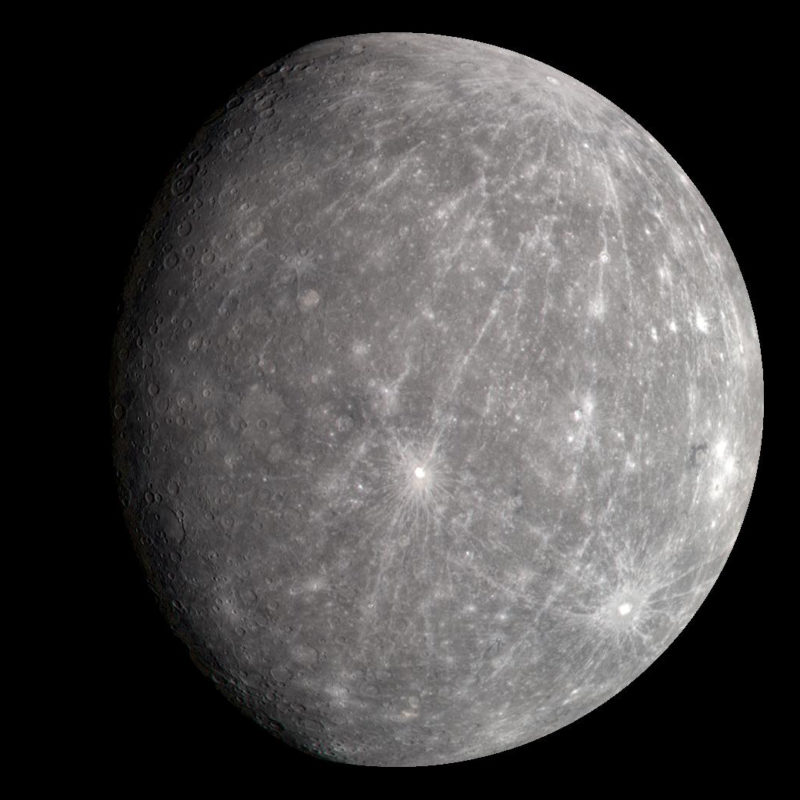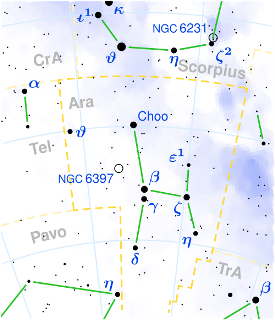How Did Mercury Get Its Name?

Mercury, the closest planet to the Sun, received its name from the messenger god of Greek mythology. The Romans, in turn, named it after their own swift-footed messenger god, Mercury, who was known for his speed and agility.
This naming decision was a nod to the planet’s speedy revolution about the Sun, which takes only 88 Earth days. Ancient astronomers were struck by its speed as it zipped through the skies, making it unique from all other heavenly bodies.
The unique appearance and orbit of Mercury fascinated the Romans. They were motivated to link this newest planet with their god, who led souls to the afterlife.
All ancient cultures wove their mythology into their understanding of the cosmos. This connection has had a lasting legacy, arguably switching the way we view the planets today.
Origin of Mercury’s Name
Roman God Mercury
The Roman god Mercury is the quicksilver messenger of the gods, known for his speed and agility, which are symbolized by the wings on his sandals and helmet. He ferries souls across rivers, leading them on their way to the underworld. This swift nature is reflected in the naming of the planet Mercury, the innermost planet that orbits the sun quicker than any other celestial body. In Roman mythology, Mercury’s symbolism of speed and dexterity is mirrored by the planet’s rapid journey across the heavens.
The cultural significance of Mercury extends beyond Rome, influencing later understandings of the terrestrial planets. Mercury is intricately linked to commerce and trade, with his name deriving from the Latin “merx” and “merces,” emphasizing his association with wealth and prosperity. This connection highlights how ancient Greeks and Romans viewed the planet as a representation of their gods, particularly the Greek messenger god who shares similar attributes.
Greek Counterpart Hermes
Mercury has much in common with the Greek god Hermes, who took on the mantle of trade, travel, and thievery. Both deities underscored speed and trickery, characteristics personified by Mercury’s quick orbit.
Hermes, like Mercury, was known to be a representation of communication and commerce, representing mythology’s strong effects on celestial naming. Greek mythology has had a profound impact on astronomy as we know it today.
We can see this impact not just in religion, but in how the name “Hermes” appears in product branding, popular culture, and media.
Naming Traditions and Practices
Celestial naming practices traditionally pulled heavily from mythology, with planets named for gods and goddesses based on their characteristics. Today, the International Astronomical Union organizes and formalizes these names, but cultural contributions are still very much present.
Mythological figures still play a role in celestial nomenclature, as seen with Venus, Mars, and Jupiter, all of which resonate with vibrant cultural myths.
Mercury in Mythology
In Roman mythology, Mercury was the fleet-footed messenger of the gods. He wore winged sandals and a winged chaperon or hat to represent speed and agility. It’s no coincidence that Mercury was more than just a messenger—he was the god of commerce, eloquence, and traders.
His divine parentage, as son of Maia and Jupiter, further enhances his status in Roman culture.
A dedication of a temple to him near the Circus Maximus reveals his importance to the city of Rome. His name “Mercury” comes from the Latin, linking to the concept of merchandise and wages, reflecting his association with commerce.

Historical Understanding of Mercury
Ancient Observations of Mercury
For thousands of years, Mercury has attracted the imagination of all of the ancient civilizations. In doing so, they recorded its movements, impressed by the speed with which it crossed their night sky. The Babylonians were one of the first civilizations to study Mercury’s movement, and they noted their observations on clay tablets.
Evolution of Astronomical Knowledge
Continuing through the centuries, the understanding of Mercury’s theories had changed. Early astronomers such as Ptolemy included it in a geocentric model of the solar system, claiming that it orbited Earth.
Then, centuries later, Copernicus turned this world upside down with a heliocentric model. It was only through the incredible improvements in telescope technology that the full orbit of Mercury became clear. Luminaries like Galileo played major roles in these discoveries.
Modern Exploration and Studies
Recent missions, including MESSENGER and BepiColombo, have augmented our understanding of Mercury significantly. MESSENGER revealed important details about Mercury’s magnetic field and surface composition.
This exploration has only become possible due to technological advancements, such as better spectrometers.
Significance of Mercury in Science
Mercury, the innermost planet in our solar system, is a unique world of fire and ice. Its small size, being just slightly larger than Earth’s moon, contributes to its distinct characteristics. Its elongated orbit gives it the special ability to travel closer to the Sun than any other planet, making it a fascinating subject of study for NASA Mercury scientists.
Mercury’s geological features, including its craters and smooth volcanic plains, testify to its violent past. The study of Mercury’s thin atmosphere, or exosphere, provides clues to understanding solar winds and the formation of terrestrial planets.
The close orbit of Mercury to the Sun leads to extreme temperature variations, which significantly influence its geological activity and surface environment. Its unique characteristics make it a key focus in the exploration of celestial bodies in our solar system.
Conclusion
Mercury’s name is a fascinating story of culture, history, and science coming together. The name roots us in the ancient mythological stories and cosmological ideas, revealing Mercury’s quicksilver, shape-shifting ways. From culture to culture, this mysterious planet continues to capture imaginations, reminding us of the common human quest for understanding. Historical perception meets cutting-edge science, showing Mercury’s true importance to our solar system. Its impact reaches from ancient mythology to modern deep space technologies.
Understanding the origins of Mercury’s name offers us an intriguing perspective into humans’ capacity for imagination and inquiry. This small, speedy planet has an uncanny ability to engage us, connecting ancient history with the present.
Frequently Asked Questions
How did Mercury get its name?
Mercury, named after the Roman god Mercury, is the innermost planet in our solar system, and its speedy passage across the sky indicated swiftness to the ancient Greeks.
What role does Mercury play in mythology?
In Roman mythology, Mercury, the gods’ messenger, is known for his incredible speed, as well as his ability to travel between the mortal and divine worlds.
Why is Mercury important in science today?
Mercury, the innermost planet in our solar system, will continue to help scientists understand how celestial bodies were formed. Its extreme temperatures and proximity to the Sun have aided in learning about planetary geology and processes.
How has Mercury influenced modern culture?
Mercury’s influence on language and culture is incalculable, serving as the muse behind phrases like “mercurial.” This innermost planet has been central to art and literature, representing transformation and speedy conveyance.
Would you like to receive similar articles by email?





